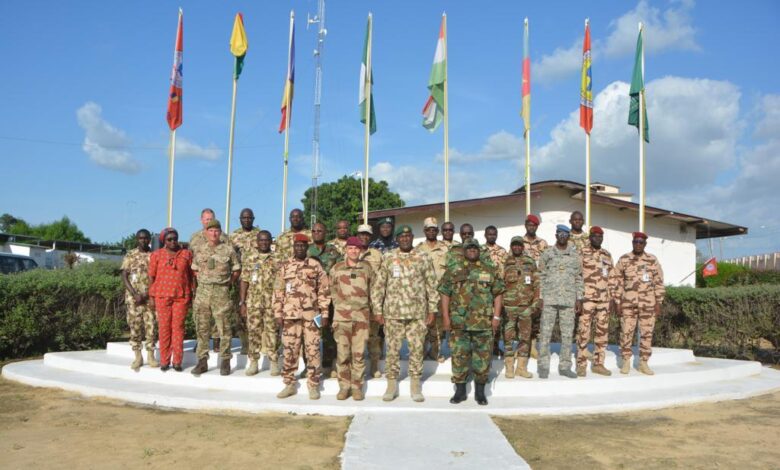ICRC Charges MNJTF With Adhering To Rules Of Engagement In Lake Chad
The humanitarian group urged multinational joint forces operating in Lake Chad to contact the families of anyone arrested during counterinsurgency operations.

The International Committee of the Red Cross (ICRC) has on Wednesday, Aug. 24, requested that rules of engagement be followed by the Multinational Joint Task Force (MNJTF) operating in the Lake Chad region as it counters Islamic State West Africa Province (ISWAP) and Boko Haram elements.
Alfa Mamadu Djalo, representing a delegation of the ICRC during a visit at the MNJTF headquarters in N’Djamena, Chad Republic, urged the military alliance to maintain contact with the families of arrested persons. He also praised the task force for its achievements.
Several people living in Lake Chad’s conflict zones have reported missing loved ones, and some of them have been unable to locate them. After years of looking, sometimes family members are located in prisons and military detention centres.
The ICRC noted last year that over 24,000 people were missing in Nigeria, mostly due to the Boko Haram conflict.
Capt. Benn Raphael, MNJTF’s Deputy Chief of Military Public Information Office, responded to the appeal by assuring the public that the task force would continue to adhere to all applicable legal procedures, as there has never been a report of the MNJTF disregarding international human rights or humanitarian laws.
The MNJTF mandate, which includes returning displaced people to their communities in Baroua, Niger Republic; Malafatori, Nigeria; Kolofata, Cameroon; and Litri in Chad, was also discussed during his briefing.
In 2014, Nigeria, Niger, Cameron, and Chad, the four countries bordering the Lake Chad basin, formed the Multinational Joint Task Force (MNJTF) to combat the Jihadists who threaten their security. However, the countries’ lack of consistent support for one another during the operation has drawn criticism.
According to the Crisis Group, the joint force has been successful in fostering cross-border cooperation, enhancing tactical coordination, and allowing forces from different countries to learn from each other.
Support Our Journalism
There are millions of ordinary people affected by conflict in Africa whose stories are missing in the mainstream media. HumAngle is determined to tell those challenging and under-reported stories, hoping that the people impacted by these conflicts will find the safety and security they deserve.
To ensure that we continue to provide public service coverage, we have a small favour to ask you. We want you to be part of our journalistic endeavour by contributing a token to us.
Your donation will further promote a robust, free, and independent media.
Donate HereStay Closer To The Stories That Matter




